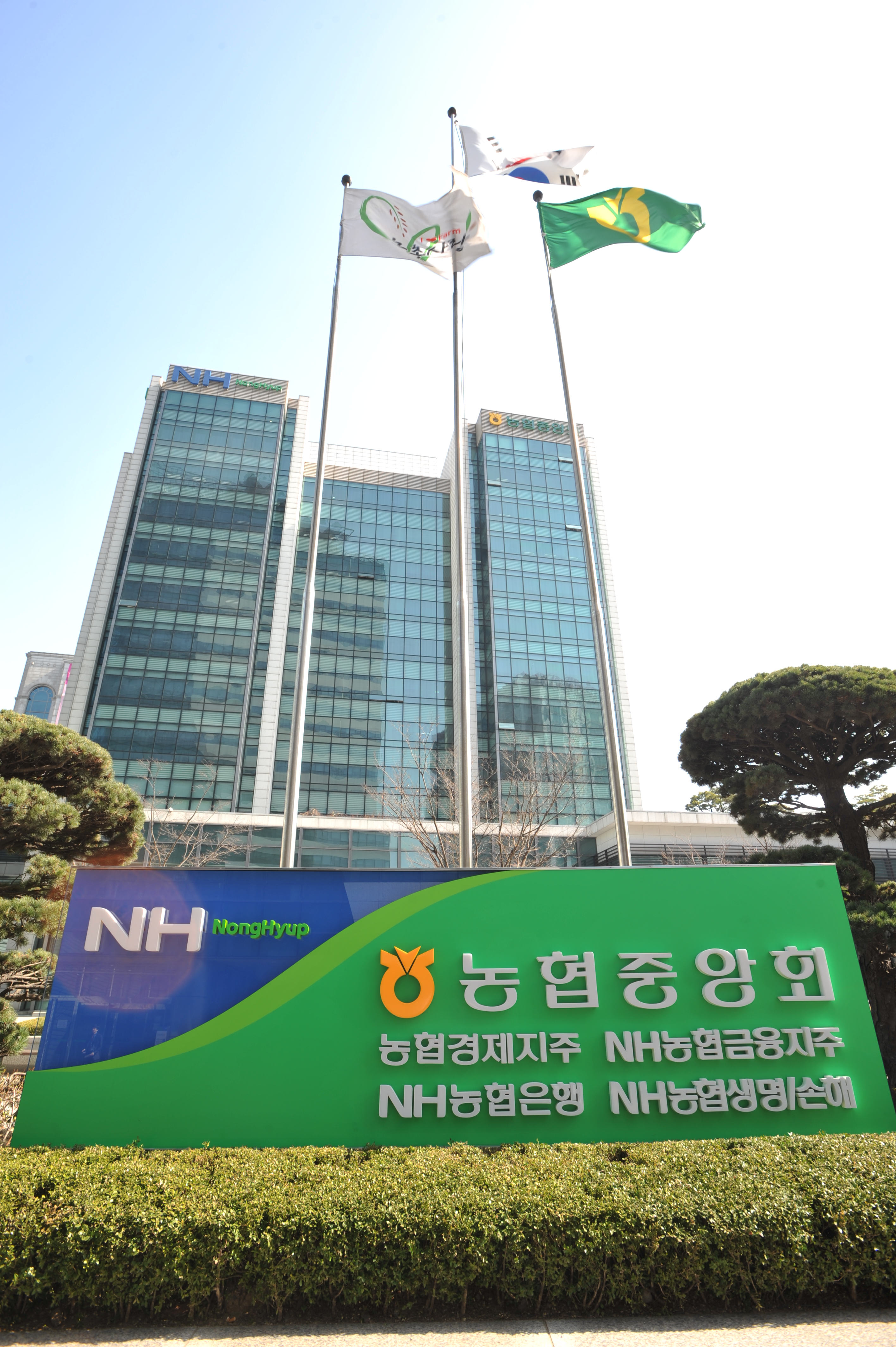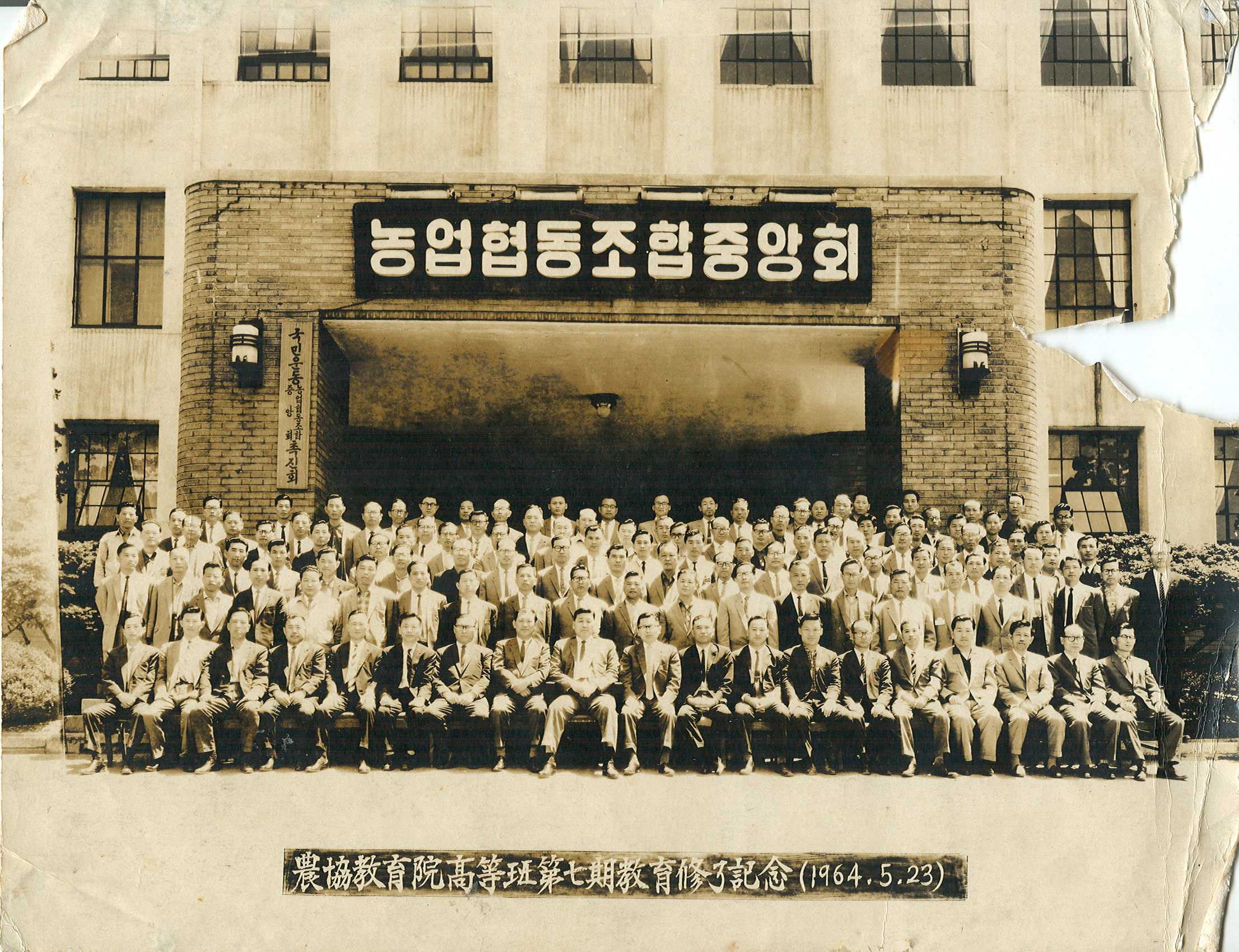Korea National Agricultural Cooperative Federation Date : 2014-04-18 Views : 9948


Half a century ago Korea was one of the poorest countries in the world. The GDP per capita was even lower than that of the least developed countries in all continents. In those days, as a way to eradicate poverty and to improve the socio-economic status of farmers, the National Agricultural Cooperative Federation (NACF) was established. Since its founding in 1961, the NACF has played crucial roles in the development of the Korean economy, and the modernization of agriculture and rural communities.
Established itself as a modern economic and cultural power, Korea is now a prominent member of the G20 group of nations. Many young people in not only Asia but also all over the world fancy to so called ‘Korean wave’, which is Korean pop culture such as TV Dramas, K-pop music singers. At the same time, the NACF has also grown to one of the successful cooperatives in the world that hundreds of professionals in agriculture-related businesses look to every year. According to the global 300 project of the ICA released in 2011, the NACF was ranked as the 9th largest cooperative and the second largest agricultural cooperative throughout the world.
The NACF is a multi-purpose cooperative which manages four main business divisions; agricultural marketing & supply, livestock marketing & supply, banking and insurance, and the extension service (guidance). As of July 2012, the NACF serves its members and customers through 27 subsidiaries and 2 affiliate organizations. It represents 2.44 million individual members, which is more than 80% of all the Korean farmers.
Agricultural marketing & supply business is the most essential domain among all services offered by the NACF because it directly involves in ensuring higher returns and benefit to member farmers. It includes agricultural marketing in both production and consumption sites, grain business and farm supply business. Approximately more than half of the agricultural products in Korea are shipped by the NACF and its member cooperatives in the production area, while 20% of all the agricultural products sold in the consumption area are channelled by the NACF and its member cooperatives.
Livestock marketing & supply business promotes a sound livestock industry that has resilient immunity and sustainable growth of the livestock industry of Korea. Its operations involve livestock production support, reduction of in-put cost, livestock distribution and sales support, and many others. Especially, it focuses on the international level of competitiveness of domestic livestock market by improving the breeding stock, and reducing the in-put costs of livestock farms.
The NACF banking business (NH Bank) serves 19.3 million customers with 43.9 million bank accounts, while member cooperatives provide banking services to 27.7 million customers with 77.8 million bank accounts. Considering 36.7 million overlapping customers, approximately 70% of the national population is currently using the NH Bank or its member cooperatives. This extensive client base is derived from its diverse banking services including private banking, retail banking, corporate banking, insurance, credit card, mutual credit and, most of all, its convenient nationwide branches.
Extension service conducts varied contribution activities for representing farmers’ interests and rights, supporting the welfare and cultural activities for farmers’ better status of living. It also engages in research and development on new technologies in agricultural fields. Through the exchange programs between urban and rural communities, it contributes to the balanced development of the national economy as well.
Since March 2, 2012, the NACF has been separately operating its NongHyup Agribusiness Group and NongHyup Financial Group. This business spin-off was intended to the sustainable growth through higher effectiveness and specialization. However, the main reason is that the internal and external business environments around Korean agricultural sector have been gradually worsening. For instance, many FTAs with major economies, such as Korea-U.S., Korea –EU, Korea-China, were already implemented or are under negotiation, which is a great threatening to Korean farmers. The number of total farmers is decreasing, and outgrowing supermarket giants have very strong buying power so that farmers groups cannot fairly negotiate with them. Thus the spin-off was the response to meet the current needs, as well as increase the standard of living of farmers.
A Global Cooperative for Mutual Growth is the NACF’s vision for the next years. In order to achieve this, the core values such as ethical management, cooperation for mutual growth, creative innovation, love for green growth, and social contribution have been pursued. In particular, the institutional cooperation between member cooperatives, subsidiaries, holding companies, and the NACF is critical because the NACF is currently undergoing the transition period since its business spin-off in March, 2012.
